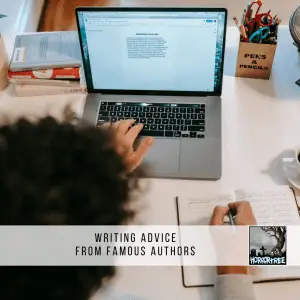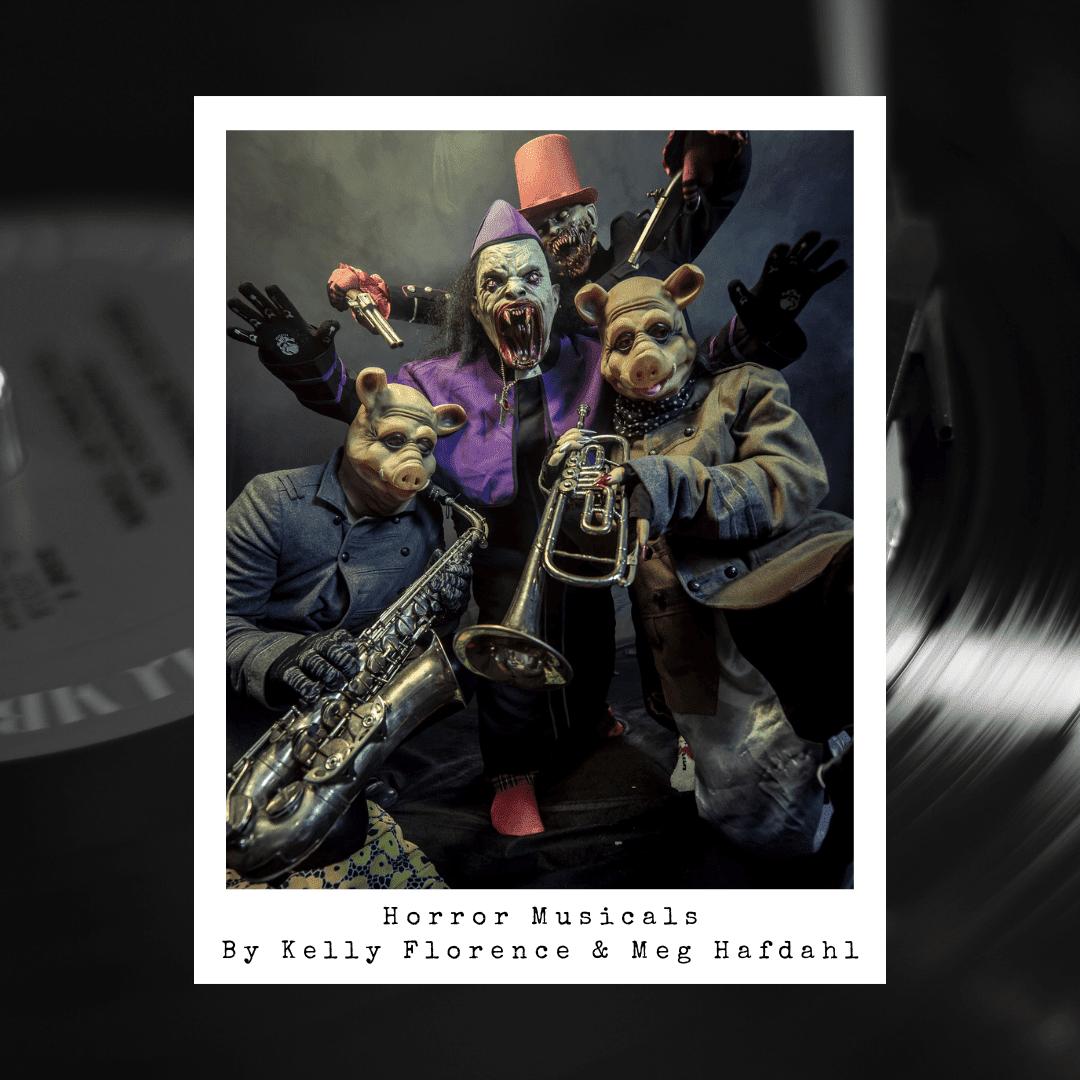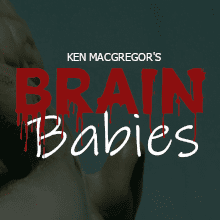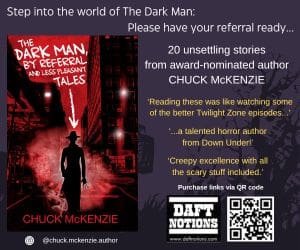Writing advice from famous authors
Writing advice from famous authors
 By Lauren McMenemy
By Lauren McMenemy
“The scariest moment is always just before you start,” says Stephen King. “After that, things can only get better.”
It’s true, but writing is hard. And scary. And it’s really easy to avoid it and go wash the dishes or something.
But writing is also magical. And wondrous. And joyful. So we’ve gathered together some of the best writing advice from famous authors as a way to jolt every writer out there (OK, to jolt me, I’m my own problem) into action. Below we start with George Orwell’s famous rules for good writing, then some short and sharp tips from Mr King, before we deliver a whole host of different perspectives on the writing life, writing process, inspiration, and genre fiction.
What’s your favourite advice from famous authors? Let us know in the comments below!
George Orwell’s “key questions and rules for the production of good writing”
In his essay “Politics and the English Language”, from 1946, the author of 1984 and Animal Farm sets out his rules for writing:
“A scrupulous writer, in every sentence that he writes, will ask himself at least four questions, thus:
- What am I trying to say?
- What words will express it?
- What image or idiom will make it clearer?
- Is this image fresh enough to have an effect?
“And he will probably ask himself two more:
- Could I put it more shortly?
- Have I said anything that is avoidably ugly?
“One can often be in doubt about the effect of a word or a phrase, and one needs rules that one can rely on when instinct fails. I think the following rules will cover most cases:
- Never use a metaphor, simile, or other figure of speech which you are used to seeing in print.
- Never use a long word where a short one will do.
- If it is possible to cut a word out, always cut it out.
- Never use the passive where you can use the active.
- Never use a foreign phrase, a scientific word, or a jargon word if you can think of an everyday English equivalent.
“Break any of these rules sooner than say anything outright barbarous.”
7 writing tips from the King himself

Stephen King at the Los Angeles premiere of “The Manchurian Candidate,” Academy Of Motion Picture Arts And Sciences, Beverly Hills, CA 07-22-04
Stephen King’s On Writing is oft-cited by authors as their bible of sorts. And with good reason; it’s chock full of tidbits. And he’s kept going, in interviews and on social media, over the years. Here are some short and sharp tips from the King:
- “Kill your darlings, kill your darlings, even when it breaks your egocentric little scribbler’s heart, kill your darlings.”
- “The most important things to remember about backstory are that (a) everyone has a history and (b) most of it isn’t very interesting.”
- “In many cases when a reader puts a story aside because it ‘got boring,’ the boredom arose because the writer grew enchanted with his powers of description and lost sight of his priority, which is to keep the ball rolling.”
- “Try any goddamn thing you like, no matter how boringly normal or outrageous. If it works, fine. If it doesn’t, toss it.”
- “Stopping a piece of work just because it’s hard, either emotionally or imaginatively, is a bad idea. Optimism is a perfectly legitimate response to failure.”
- “It starts with this: put your desk in the corner, and every time you sit down there to write, remind yourself why it isn’t in the middle of the room. Life isn’t a support system for art. It’s the other way around.”
What do some other famous authors say about writing?
Thanks to Freewrite, The Guardian, Bustle, Monster Complex, The Writer, and Cornett Fiction, and more for sharing these tips!
On the writers’ life
Neil Gaiman
“This is how you do it: you sit down at the keyboard and you put one word after another until it’s done. It’s that easy, and that hard.”
Andy Weir
“You have to actually write. Daydreaming about the book you’re going to write someday isn’t writing. It’s daydreaming. Open your word processor and start writing.”
Hilary Mantel
“The most helpful quality a writer can cultivate is self-confidence – arrogance, if you can manage it. You write to impose yourself on the world, and you have to believe in your own ability when the world shows no sign of agreeing with you.”
HP Lovecraft
“At night, when the objective world has slunk back into its cavern and left dreamers to their own, there come inspirations and capabilities impossible at any less magical and quiet hour. No one knows whether or not he is a writer unless he has tried writing at night.”
Linda D. Addison
“Even when you’re not putting words on paper/computer, you’re writing. Living is writing. Everything we do feeds creativity, even in the most un-obvious ways..”
Margaret Atwood
“Pay attention to your posture. Keyboarding is hard on the neck and the back. You don’t notice it so much when you’re young, but it will catch up to you. It’s hard to write when you’re in agonizing pain. So—back exercises, get enough exercise, walk around.”
On the writing process
Zadie Smith
“Protect the time and space in which you write. Keep everybody away from it, even the people who are most important to you.”
Ernest Hemingway
“There is nothing to writing. All you do is sit down at a typewriter and bleed.”
Anton Chekhov
“Don’t tell me the moon is shining; show me the glint of light on broken glass.”
Edgar Allen Poe
“A short story must have a single mood and every sentence must build towards it.”
R.L. Stine
“There’s no formula. I think you have to create a very close point of view. You have to be in the eyes of the narrator. Everything that happens, all the smells, all the sounds; then your reader starts to identify with that character and that’s what makes something really scary.”
Helen Oyeyemi
“I tend to prioritize emotional realism above the known laws of time and space, and when you do that, it’s inevitable that strange things happen. Which can be quite enjoyable, I think.”
Ramsey Campbell
“Always have a rough idea of your first paragraph before you sit down to write, and then you won’t be trapped into fearing the blank page. If you must take a day or more out from a story, break off before the end of a scene or a chapter, to give yourself some impetus when you return. Always carry a notebook for ideas, glimpses, overheard dialogue, details of what you’re about to write, developments of work in progress.”
Stephen Graham Jones
“The only question you need to be able to answer about your story is: Why today? Why this day out of your character’s life rather than all the other days? And the answer, it’s always Because this is the day that’s breaking the rhythm, the day that’s an aberrance, the day everything can change, if the character can just walk that tightrope to the last page.”
Alma Katsu
“Try to write every day. Take some time to think about what you’ve written, what scene comes next. Make sure you keep reading. Think about what challenges you in your writing and see how other writers handled it. (I had to deal with time jumps in The Taker, and so I studied The Time Traveller’s Wife, for instance.) There are great books on writing; start building your reference shelf. Ursula LeGuin’s Steering the Craft is great for the basics: POV, verb tenses, handling exposition. Eventually, join a writing group to get feedback on your work. Critiquing others’ work is a great way to grow your editorial eye. Remember, this is a craft—no rush, commit to getting better every day.”
Victor LaValle
“There are plenty of times when it’s obvious to me that a scene, or a chapter, or a character, isn’t working. By that I mean they’re unconvincing. It doesn’t matter if we’re on Mars or in Montana, I simply don’t believe these characters in their actions, thoughts, or dialogue. That’s the easiest to deal with, in a way, because if I can see it’s false then I know other readers will, too.”
On inspiration
William Faulkner
“Read, read, read. Read everything – trash, classics, good and bad, and see how they do it. Just like a carpenter who works as an apprentice and studies the master. Read! You’ll absorb it. Then write. If it’s good, you’ll find out. If it’s not, throw it out of the window.”
Shirley Jackson
“One of the nicest things about being a writer is that nothing ever gets wasted. A writer who is serious and economical can store away small fragments of ideas and events and conversations, and even facial expressions and mannerisms, and use them all someday. I believe that a story can be made out of any such small combination of circumstances, set up to best advantage and decorated with some use of the imagination.”
Anne Rice
“Writers write about what obsesses them. You draw those cards. I lost my mother when I was 14. My daughter died at the age of 6. I lost my faith as a Catholic. When I’m writing, the darkness is always there. I go where the pain is.”
On genre fiction
Ray Bradbury
“I have never listened to anyone who criticized my taste in space travel, sideshows or gorillas. When this occurs, I pack up my dinosaurs and leave the room.”
Tananarive Due
“I’d had it drummed into my head in creative writing workshop courses that one could not expect to be a respected writer when writing commercial or genre books. Legitimacy has always been very important to me… Finally, though, I said the heck with all of it. I wasn’t going to try to be Toni Morrison or Joyce Carol Oates, I was just going to be me, and I was going to write about the people I know.”
Clive Barker
“Horror fiction has traditionally dealt in taboo. It speaks of death, madness and transgression of moral and physical boundaries. It raises the dead to life and slaughters infants in their cribs; it makes monsters of household pets and begs our affection for psychos. It shows us that the control we believe we have is purely illusory, and that every moment we teeter on chaos and oblivion.”
Tim Waggoner
Effective horror is personal in that it comes from an individual imagination, not a generic one. We get to the universal through the particular. Fears we all have – fear of failure, abandonment, injury, sickness, death – don’t make effective stories in and of themselves until they’re embodied in a specific situation… Go beyond simple, easy fears in your horror fiction, and you’ll produce some awesomely creepy work that will get under your readers’ skin in the best way possible.
And my personal favourite writing advice…
Speaking of Tim Waggoner, I first came across this quote from Lee Murray in Waggoner’s book Writing in the Dark, and I immediately copied it out and saved it on my phone. I love it so much!
“Think of it like a Mad Hatter’s tea party. No room at the literature table? Sit down anyway. Take the rabbit hole to the underworld. Conjure shrink-grow monsters, evil queens, the perfidy of time, and lonely, spiralling madness. Choose chaos as a ruling principle. Ask the hard questions. Say what you mean. Talk when you want to. Debate the intricacies of language. Hide the bodies of your friends in teapots. Cut off their heads. Reference Poe. And drink more of the beverage of your choice.”
Putting the writing advice into practice
But, of course, what do any of them know? The best writing advice out there is that you need to find what works for YOU and you alone. You can take these ideas, these tips, as inspiration for experimentation, but they are not a prescription.
Not everyone writes every day.
Not everyone gets up at 5am to write before the house awakes.
Not everyone has a sacred writing space that noone else can enter.
Be authentically you. That’s all anyone asks.
- About the Author
- Latest Posts
Lauren McMenemy wears many hats: Editor-in-Chief at Trembling With Fear for horrortree.com; PR and marketing for the British Fantasy Society; founder of the Society of Ink Slingers; curator of the Writing the Occult virtual events; writers hour host at London Writers Salon. With 25+ years as a professional writer across journalism, marketing, and communications, Lauren also works as a coach and mentor to writers looking to achieve goals, get accountability, or get support with their marketing efforts. She writes gothic and folk horror stories for her own amusement, and is currently working on a novel set in the world of the Victorian occult. You’ll find Lauren haunting south London, where she lives with her Doctor Who-obsessed husband, the ghost of their aged black house rabbit, and the entity that lives in the walls.











